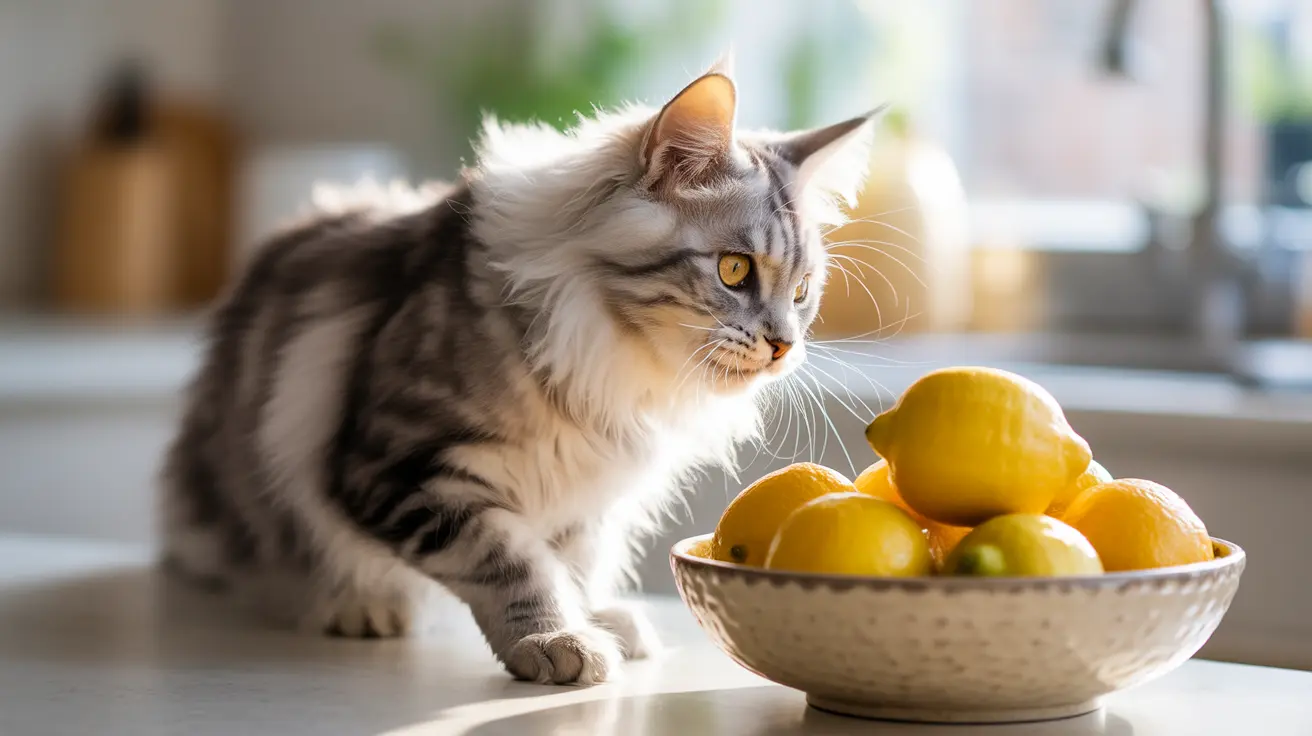Cats are renowned for their extraordinary sense of smell, which is far more powerful than human olfactory capabilities. While this keen sense helps them navigate their environment, it also means certain odors can be intensely unpleasant or even dangerous for our feline friends. Understanding which smells cats hate can help pet owners create a more comfortable and safe home environment.
This guide will explore the fascinating world of feline scent aversions, providing insights into why cats react strongly to specific odors and how to protect their sensitive noses.
Why Do Cats Hate Certain Smells?
Cats have approximately 200 million odor sensors in their nasal passages, compared to just 5 million in humans. This biological advantage means they experience smells much more intensely. Their aversions to specific scents are often protective mechanisms evolved to avoid potential toxins or irritants.
Citrus Scents: A Natural Cat Repellent
Citrus fruits like oranges, lemons, and grapefruits are among the most universally disliked smells for cats. The strong, acidic oils in these fruits overwhelm their sensitive olfactory system. Importantly, citrus peels and oils can be toxic if ingested, making them both a deterrent and a potential health hazard.
Key Citrus Smell Considerations
- Avoid leaving citrus peels or essential oils where cats can access them
- Use citrus scents cautiously as a natural deterrent for unwanted cat behaviors
- Never force a cat into contact with citrus products
Spicy and Strong Aromatic Deterrents
Cats have a strong aversion to spicy and pungent smells. Substances like chili powder, pepper, mustard, and curry can cause significant discomfort. These intense aromas can irritate their sensitive nasal passages and potentially cause respiratory distress.
Safe Alternatives to Spicy Deterrents
- Use commercial pet-safe repellent sprays
- Consult with veterinarians for behavior modification techniques
- Avoid using spices directly on surfaces cats frequent
Household Chemicals and Artificial Fragrances
Essential oils, perfumes, and strong cleaning products are particularly offensive to cats. Many of these substances contain chemicals that are not just unpleasant but potentially toxic. Tea tree oil, for example, can be extremely harmful if ingested or even inhaled by cats.
Protecting Cats from Toxic Household Smells
- Choose pet-friendly, fragrance-free cleaning products
- Ensure proper ventilation when using any chemical cleaners
- Store potentially harmful substances in sealed, inaccessible locations
Herbs and Plants Cats Typically Avoid
Some herbs and plants naturally repel cats due to their strong scents. Lavender, eucalyptus, and certain mint varieties can be overwhelming for felines. While some of these plants are merely unpleasant, others can be toxic if ingested.
Signs of Smell-Related Distress in Cats
If a cat is exposed to a smell they find extremely unpleasant or toxic, they might exhibit the following symptoms:
- Excessive drooling
- Pawing at the nose or face
- Sneezing or coughing
- Lethargy
- Vomiting
- Refusal to eat
Frequently Asked Questions
What scents do cats dislike the most, and why do they avoid them?
Cats most strongly dislike citrus, spicy, and chemical smells due to their intense sensitivity and potential toxicity. These odors can be overwhelming to their advanced olfactory system.
How can I safely deter my cat from specific areas using smells they hate?
Use pet-safe commercial deterrent sprays, consult with a veterinarian, or use mild, non-toxic scents like diluted apple cider vinegar in areas you want to discourage cats from accessing.
Are essential oils toxic to cats, and how can I use them around my home?
Many essential oils are toxic to cats. It's best to avoid using them in homes with cats, or consult a veterinarian for guidance on safe alternatives.
Can strong-smelling household cleaners harm my cat, and what alternatives should I use?
Strong household cleaners can harm cats. Choose pet-friendly, fragrance-free cleaning products and ensure proper ventilation when cleaning.
How can I identify if my cat has ingested something toxic based on their reaction to certain smells?
Watch for symptoms like drooling, vomiting, lethargy, or changes in eating habits. If you suspect toxin exposure, contact your veterinarian immediately.
Understanding your cat's olfactory sensitivities can help create a safer, more comfortable environment for your feline companion. Always prioritize their health and well-being when introducing new scents or products into your home.






